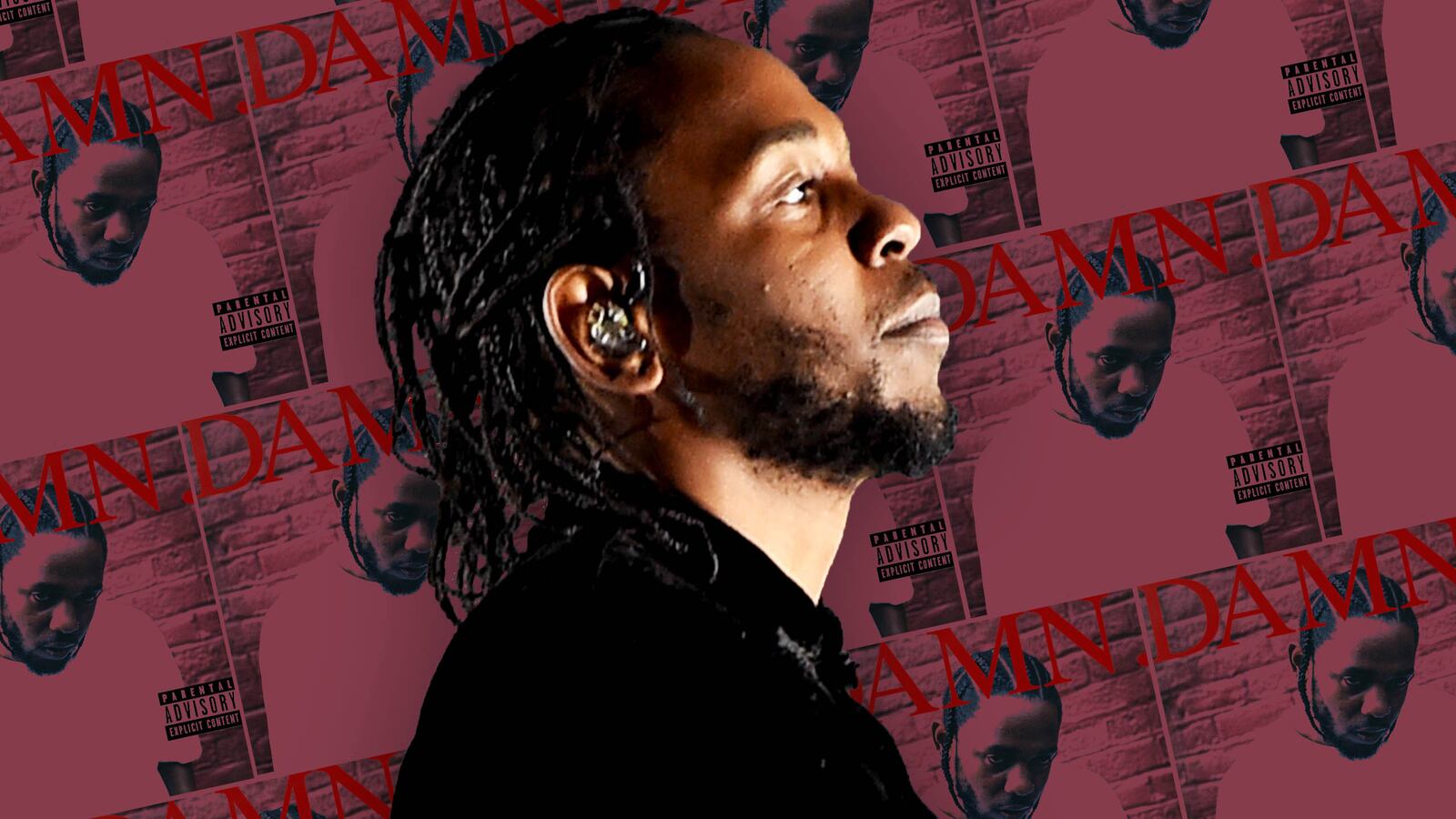Rappers boast of plenty of things in their lyrics, but now the Pulitzer Prize prize can be added to the list. Compton’s Kendrick Lamar will be the first rapper (and first winner who is not a classical or jazz musician) able to name-drop the Pulitzer for music after his album DAMN. was awarded the honor this Monday.
DAMN. was awarded because the Pulitzer board characterized it as “a virtuosic song collection unified by its vernacular authenticity and rhythmic dynamism that offers affecting vignettes capturing the complexity of modern African-American life.” Pulitzer administrator Dana Canedy told the New York Times after announcing the award, “The time was right. We are very proud of this selection. It means that the jury and the board judging system worked as it’s supposed to — the best work was awarded a Pulitzer Prize. It shines a light on hip-hop in a completely different way. This is a big moment for hip-hop music and a big moment for the Pulitzers.”
It's certainly an honor to receive the Pulitzer and Lamar deserves all the accolades for his treatise on self-righteousness, violence, and spirituality within the black community and himself. But it's easy to hear the phrase “the time was right” and call to mind Lamar's Grammy losses. Earlier this year, he lost Album of the Year to Bruno Mars. Two years prior, he lost the same category to Taylor Swift. Two years prior to that, he lost the same category to Daft Punk. Lamar has been at the top of his game for years and his own industry has refused to award him, so it was certainly a shock that the Pulitzer board would.
It is particularly surprising when the award was given for “capturing the complexity of modern African-American life,” as if black musicians haven't been doing that for decades. Certainly since 1943, when the Pulitzers expanded to music. You only need to look to another black artist at the top of their game right now: Beyoncé, who also lost Album of the Year (and was awarded no Pulitzer) for her staggering 2016 album Lemonade. This past weekend at the Coachella Valley Music and Arts Festival, she mounted a spectacular performance that honored the history of black contributions to music — from hip-hop, to jazz, to bounce, to Juvenile, to Nina Simone — and filtered it through a presentation designed purely for a black gaze. Beyoncé's own mother, Tina Lawson, admitted on Instagram that she worried the “predominantly white audience at Coachella would be confused by all of the black culture and Black college culture.” According to Lawson, Beyoncé responded, “I have worked very hard to get to the point where I have a true voice and at this point in my life and my career I have a responsibility to do what's best for the world and not what is most popular.”
Beyoncé’s performance was breathtaking in many of the ways Lamar’s album is. It is black art devoid of pandering to a white aesthetic and it celebrates black history while also managing to entertain. It’s no surprise that Beyoncé and Lamar have collaborated — during her Coachella set Beyoncé performed their joint song, “Freedom,” after a rendition of the Black National Anthem, James Weldon Johnson’s song “Lift Every Voice and Sing.” She performed it alone this time, but she’s performed the song with Lamar before — most famously at the 2016 BET Awards as they splashed about in a pool of water, baptizing themselves and the audiences with their asomatous art.
Freedom to both artists is, to put it simply, to proclaim, “I’m black and I’m proud” as James Brown did in 1968. For Beyoncé, it’s thanking Coachella for “allowing [her] to be the first black woman to headline,” then adding, “ain’t that a bitch?” before launching into a black joie de vivre. For Lamar, it’s his music allowing him to use his poetry to reckon with absolution from the personal sins he was ushered into while growing up amidst gang violence in Compton.
It’s perhaps prophetic then, that Lamar is the first to win the Pulitzer as a rapper. Wasn’t it the first black sitting President to admit that his favorite album is a rap album — Lamar's To Pimp a Butterfly? When Canedy said “the time was right” after she announced Lamar’s win, she wasn’t speaking as someone who had finally acknowledged the power of hip-hop in exploring dimensions of black life. It was only in July of last year that Canedy replaced Mike Pride as the administer of the Pulitzer Prizes, becoming the first woman and first African-American to hold the position. If it was about time for Lamar, then it was about time for Canedy as well — and for greater recognition of black excellence.






